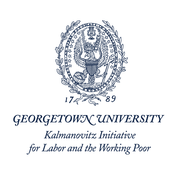“Gaslighting” was Merriam-Webster’s 2022 word of the year, a selection based on the frequency of searches in their online dictionary. The term makes good sense on cultural grounds as well, given the ongoing influence of political and economic chicanery on the US psyche. But “oligarch” was number two, and it may well prove to be the more consequential term–particularly for the working class.
Experts have long debated the reliability of language use as evidence of deep cultural beliefs, but in today’s information and media-saturated world it’s reasonable to assume that words trending in the metaverse have real analogues in—and even impacts on—cultural thinking.
So it seems natural that both gaslighting and oligarch were central to popular social consciousness in 2022, mainly due in the US to media-enacted antics of Jeff Bezos, Elon Musk, and the like. Musk’s particular Twitter tantrums managed to unite gaslighting and oligarchy in ways heretofore seen mainly in the behavior of Gaslighter-in-Chief and oligarchic mini-me Donald J. Trump. As economist Paul Krugman recently declared “we’re clearly living in the age of the petulant oligarch.”
That linkage of childishness and oligarchic behavior can provide some dark humor, with Musk’s blurring of the line between real world and mediated world suggesting that he finds the whole process amusing. In his recent fraud trial, Musk cheekily testified that, “Just because I tweet something does not mean people believe it or will act accordingly.”
But viewing oligarchic gaslighting as mere childishness papers over the real economic devastation wrought by extreme wealth. The fading middle class and subsequently expanding working poor, underemployed, and poverty-stricken remind us that we should take oligarchic power seriously, particularly given its ubiquity and wide-ranging enactors.
As Merriam-Webster itself notes, it is not just Musk and Bezos who are trending. It is also Vladimir Putin, who enables and has been enabled by Russian oligarchs. The war on Ukraine has turned gaslighting into very concrete and real devastation. But the insidious behavior of the oligarchy in the region had already been dramatized by the Ukrainian television series Servant of the People–a satire that offered not merely humor but also biting discussion of current social issues.
It is commonplace to focus on Servant as a near-perfect foretelling of Volodymyr Zelensky’s real-world rise to the Ukrainian presidency, an ironic prediction of his fictional character Goloborodko’s election to the post. Clearly life does imitate art; language and media truly do mirror reality. But the focus on Zelensky overlooks the series’ emphasis on the destructiveness of extreme wealth and power.
Oligarchs appear early and often within Servant. At first we see them in fragments — the backs of heads, partial faces, devouring mouths, and disembodied hands manipulating the action from afar. As the series develops, they are gradually revealed as specific figures. The ensuing—and sarcastic—semi-fictional portrayal of oligarchic power and its societal damage is both prescient and more than somewhat horrifying in light of Russia’s war on Ukraine.
The tragic effects of that war offer immediate, material proof of the dangers of the unholy alliance of political demagoguery and extreme wealth, state-based gaslighting and oligarchic power. And these dangers extend far beyond the war’s immediate victims, as economic strain and food shortages ripple outward to working and poor people world-wide.
Further, long-term damage to working classes and their interests is likely even after the war, particularly in regard to unionization. Recent headlines — “Ukraine Corruption Scandal Stokes Longstanding Aid Concerns in U.S.” — read like an already familiar story-line from Servant’s second season. In the fictional world, Zelensky/President Goloborodko battles oligarchs not only to end corruption, but also to satisfy investment-oriented interests such as the International Monetary Fund and the European Bank for Reconstruction and Development. In Servant, Ukraine gets to tell them and their economic planners “to go to hell.”
Shifting to the real world, Patricia Cohen notes that current discussions about rebuilding a post-war Ukraine are rooted in very similar neo-liberal economic attitudes. The same European Bank for Reconstruction and Development satirized in Servant has called for “Promoting privatisation and commercialisation in the public sector to increase competitiveness and good governance,” a stance that Joseph Stiglitz, the Nobel-prize winning Columbia University economist, finds “just gobsmacking.” Such strategies “brought inequality, environmental degradation, and insufficient housing and medical care in the United States and other countries,” yet they are being “promoted as a model for Ukraine.”
Unfortunately, redevelopment narratives foregrounding privatization will find ready acceptance within neo-liberal, conservative, and even centrist circles in the West. But as Stiglitz’s comment suggests, this approach to rebuilding will likely lead to oligarchic imbalances. Privatization often fosters not sound economies but failure of governmental control and related despotism, as we’ve seen in Russia and, as Krugman implies, in the U.S. as well.
None of this is good for workers and workers’ rights, in part because these approaches often translate to union busting. While unions do come under comedic attack in Zelensky’s Servant (most notably Episode 15, Season 1), they do so within the larger argument that corruption at the top inevitably bleeds down to the worker in the street because oligarchic wealth poisons society as a whole.
A more hopeful narrative line, and one that Servant suggests, concerns social activism and involvement, communal engagement and collective action — hallmarks not of privatization but of union and community organizing. With that storyline in mind, it would be nice if 2023 or any year’s word of the year were ‘activism.’
James V. Catano
James V. Catano is producer/director of Enduring Legacy: Louisiana’s Croatian Americans and author of Ragged Dicks: Masculinity, Steel, and the Rhetoric of the Self-Made Man. He is Professor Emeritus of English and Screen Arts at Louisiana State University.



Pingback: Die Gier nach Reichtum trotz Polykrise - Plattform Agenda 2030